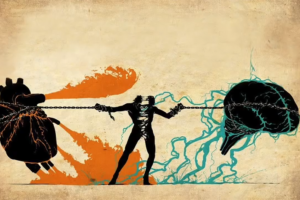How’s your heart?No, I don’t mean your physical heart. I’m referring to the heart that you’ve given to the people who mean the most to you. Does it feel appreciated? Does it feel loved? Or, does it feel taken advantage of? Used? Unappreciated? Stressed?
Do you think this emotional pain has an impact on your physical health? If you said ‘Yes,’ you’re absolutely right!
Harvard, the American Heart Association, and the National Heart, Lung, and Blood institute all agree that emotional health is a big contributor to physical health, including cardiac health.
In an interview titled, ‘Emotional stress and heart disease in women,’ Dr. Viola Vaccarino states, “Ischemia triggered by mental stress has been associated with a doubling of risk for future heart attacks and death in cardiac patients.”
So, what can we do about this?Here are 3 simple strategies you can begin applying to your life today to improve the emotional well-being of your heart and mind.
Open and Honest Communication:
I know what you’re thinking…”breakthrough suggestion doc,” right? Joking aside, how open and honest is your communication with your loved ones? For most people, not very. As a society, we have been conditioned from a young age to suppress our emotions and not talk about the feelings we’ve been led to believe are ‘negative.’ This leads to an accumulation of emotions that can lead to all kinds of psychosomatic symptoms such as chest pain, trouble breathing, feeling the weight of the world on your shoulders, anxiety, heart disease, fatigue, and much more.
Try this:Tell the people you love how much they mean to you. Thank them for all of their love and support over the years. I promise you everyone will enjoy hearing this from you, and you’ll feel closer to them and better about yourself.
Next, respectfully say what’s on your ‘heart’ to the person or people in your life who are adding stress to your life. To avoid potential arguments, do not come from a place of blaming the other person (this typically leads to that person becoming defensive). Rather, explain how you’re feeling, what behavior or spoken word triggered you, what that experience meant to you, and put forth what you’d like to happen moving forward. End by asking, “Can we make this work?”
Remember:You and this person are on the same team. It’s ‘you and me vs. the problem.’ Not, ‘you vs. me.’
Journaling:
What do you do if you’re not quite ready to speak with that person, or perhaps you’re unable to speak with that person for a variety of reasons?
Write, Write, Write!
A big reason why people becoming overwhelmed with stress is that they keep so much bottled up inside their head that eventually it begins to spill out. How can you avoid this?
Spend a few minutes each day writing down what you’re feeling, why you believe you’re feeling it, your experiences, frustrations, insights that come to you, what you’d like to say to certain individuals, actions you plan to take to remedy the situation, and anything else you’d like to get out of your head and onto the page.
Many people find that after journaling, they’re in a much calmer state of mind, and most of their worry, anxiety, and stress melts away.
You can add a gratitude practice to your daily journal as well. Here are some suggestions:
- Today I am so grateful for (Person’s Name) in my life because…
- I am grateful for (Experience) because it allowed me to…
- I am grateful for (Challenge) because it taught me that…
Forest Bathing:
Forest Bathing, or Shinrin-Yoku as it’s called in Japan and China, refers to the physiological and psychological health benefits of being exposed to nature and green environments. Going for a walk through your favorite park, along a forest trail, and simply being out in nature has been shown to have therapeutic effects on:
- The immune system (increase in natural killer cells/cancer prevention)
- The cardiovascular system (hypertension/coronary artery disease)
- The respiratory system (allergies and respiratory disease)
- Depression and anxiety (mood disorders and stress)
- Mental relaxation (Attention deficit/Hyperactivity Disorder)
- Human feelings of “awe” (increase in gratitude and selflessness)
So, what are you waiting for? It’s simple, it’s free, and it can be a lot of fun. Get outside today!
I hope these 3 simple strategies served you, and if I can be of further assistance to you, CLICK HERE, and we can speak. I wish you well.
Dr. Jamil Sayegh NMD
Sources:
Emotional stress and heart disease in women: an interview with Dr. Viola Vaccarino
Managing your emotions can save your heart
Mental health and Heart Health
Shinrin-Yoku (Forest Bathing) and Nature Therapy: A State of the Art Review:
https://www.ncbi.nlm.nih.gov/pmc/articles/PMC5580555/
Your Emotions and your Heart: Harvard Health Publishing
https://www.health.harvard.edu/heart-health/your-emotions-and-your-heart






